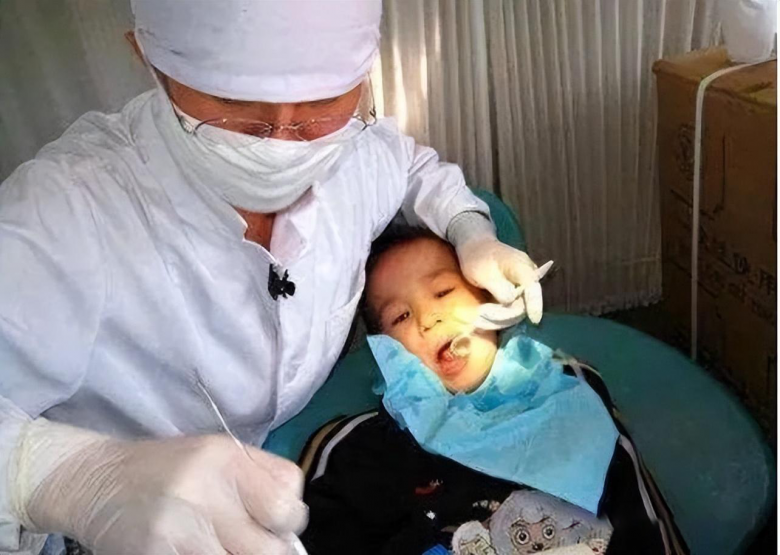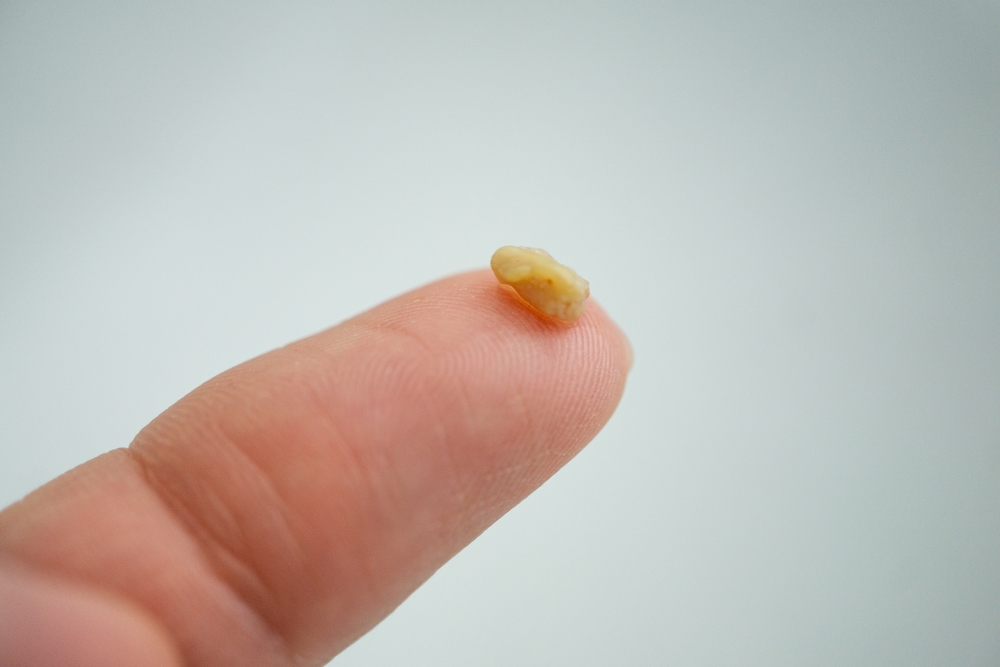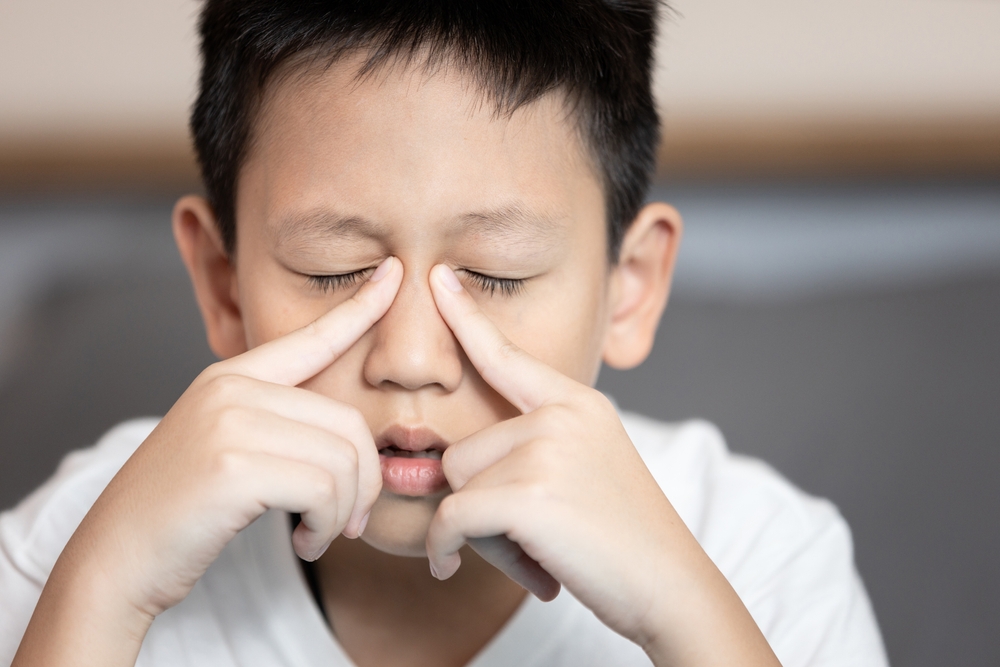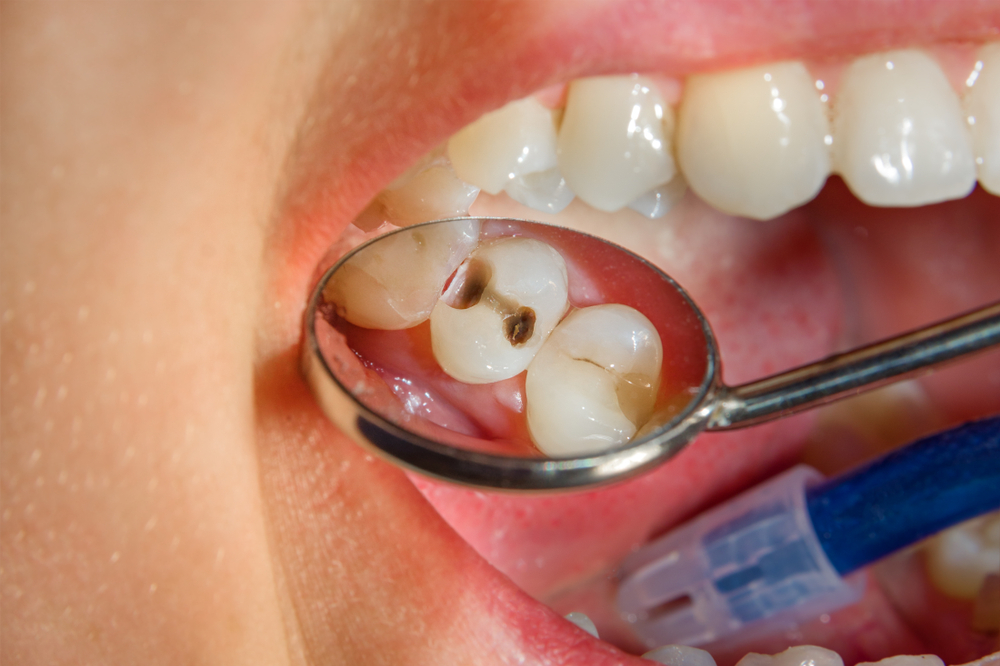Seven-year-old Xiao Fei from China was experiencing every child’s nightmare: His classmates were teasing him, avoiding him, whispering behind his back, and refusing to play with him. They weren’t doing it because they didn’t like him, but rather because being around him was difficult. There was a foul odor that seemed to be following him everywhere. The situation finally came to a head when the teasing led to a fight between Xiao and another student. His teachers called his mother, who was both concerned and confused as to where this bad smell was coming from. She took her son to the hospital to get to the bottom of his extremely bad breath.
Tonsil Stones and Bad Breath

At the hospital, the doctors made a surprising diagnosis: tonsil stones. Xiao’s mother watched in shock as the doctor used a special instrument to remove tiny, yellowish, and hard objects, similar to dry grains of rice, from her son’s mouth. The stones emitted a terrible odor, which confirmed that they were the source of her son’s horrible breath. The doctor explained that tonsil stones were the culprits and spoke to Xiao’s mother about the importance of proper oral hygiene and a healthy diet.
Xiao’s mother took the doctor’s advice seriously and spoke to her son about tonsil stones and his bad breath. She explained that they needed to adopt a new routine in order to prevent their return. This included regular, proper tooth brushing, and changing his diet to include more whole foods, fruits and vegetables, and less sugar and processed foods. As his oral health improved, the bad breath disappeared. No longer put off by the odor, his classmates were once again more than happy to play with him.
What Are Tonsil Stones?

Medically known as tonsilloliths, tonsil stones are small, hard deposits that form in the crevices of the tonsils. Your tonsils are part of your immune system, and their surface is naturally lined with small pockets and tunnels called crypts. Tonsil stones form when food particles, dead cells, mucus, and bacteria get trapped in these crypts. Over time, this debris hardens, or calcifies, into small, white or yellowish lumps. While they are generally harmless, their presence often leads to symptoms like persistent bad breath, sore throat, difficulty swallowing, or a feeling as if something is stuck in your throat.
How to Prevent Tonsil Stones

Some people are more prone to tonsil stones than others. This can be because of a history of tonsillitis or naturally deeper tonsil crypts. That being said, there are several steps that you can take to prevent tonsil stone formation, regardless of your inclination towards them. These include:
- Maintain good oral hygiene: Listed at number one because it is the most important. Brush your teeth and tongue thoroughly at least twice a day. Daily flossing can also help to remove food particles and bacteria.
- Gargle regularly: Gargling with warm salt water can help to dislodge food and debris from your gums and teeth. It can also help to reduce the overall bacterial load inside your mouth. You may instead choose to gargle with an alcohol-free mouthwash.
- Stay hydrated: Drinking plenty of water throughout the day helps to keep your mouth moist and promotes saliva production, which naturally flushes away debris.
- Quit smoking: Smoking can contribute to chronic inflammation and an imbalance of bacteria in your mouth. This increases the risk of developing tonsil stones.
- Eat a healthy diet: While not a definitive solution, eating a diet that is rich in vegetables and fruits and low in processed foods, sugary drinks, and other less healthy items can contribute to an overall healthier oral environment. The healthier your mouth is, the less likely you are to develop tonsil stones.
More Than Just Tonsil Stones: Other Causes of Bad Breath in Children
Though tonsil stones were the cause of Xiao Fei’s bad breath, they are just one of the many potential causes of bad breath in children. For many kids, bad breath is a common issue with several possible sources. Most of these are easily managed. If your child has bad breath, it could be because of one or more of the following:
Poor oral hygiene

Just because you don’t have tonsil stones doesn’t mean you have good oral hygiene. In fact, this is the most common cause of bad breath in people of all ages. When children don’t brush their teeth, tongue, and gums effectively, food particles and bacteria get left behind. These bacteria break down the leftover food and produce smelly sulfur compounds that then lead to bad breath.
Sinus and Respiratory Issues

A persistent stuffy nose, sinus infection, or post-nasal drip can all lead to bad breath. The mucus that drips down the back of the throat becomes a food source for bacteria. These bacteria then release an unpleasant odor from your mouth.
Dietary Factors

What a child eats can have a direct impact on their breath. Foods with strong odors, such as garlic and onions, contain compounds that are absorbed into the bloodstream. These aromas are then released through the lungs when the child exhales, causing the smell to linger.
Read More: Stem Cell Dental Implants May Replace Dentures In The Future
Dry Mouth

Saliva is your mouth’s natural cleaning agent. It helps to wash away food particles and bacteria. If a child has a dry mouth, either from not drinking enough water, mouth breathing during sleep, or as a side effect of certain medications, bacteria can accumulate and cause bad breath.
Foreign Objects

In toddlers and young children, a sudden onset of bad breath can be a sign that they have lodged a small object, like a bead or a piece of food, in their nose. The object can then cause an infection that produces a foul smell. If you think there is something in their nose but are unable to remove it yourself, go see a healthcare professional who can help you remove it safely.
Dental Problems

Cavities, gum disease, or even a loose filling can trap bacteria and food, leading to a persistent bad smell. Regular dental check-ups are essential to catch and address these issues early. Your child should visit the dentist once a year, and more frequently if you suspect a problem.
The Bottom Line
Bad breath can not only be a social stunt for your child and make them a target for bullying, it could also be a sign of underlying issues with their health or hygiene routines. If your child has persistent bad breath despite good oral hygiene and a healthy diet, it is important to consult a doctor or dentist. They can rule out any potential underlying medical conditions and help you solve the problem before it becomes even more serious.
Read More: The Link Between Childhood ADHD and Sleep Disorders That Can’t Be Ignored

